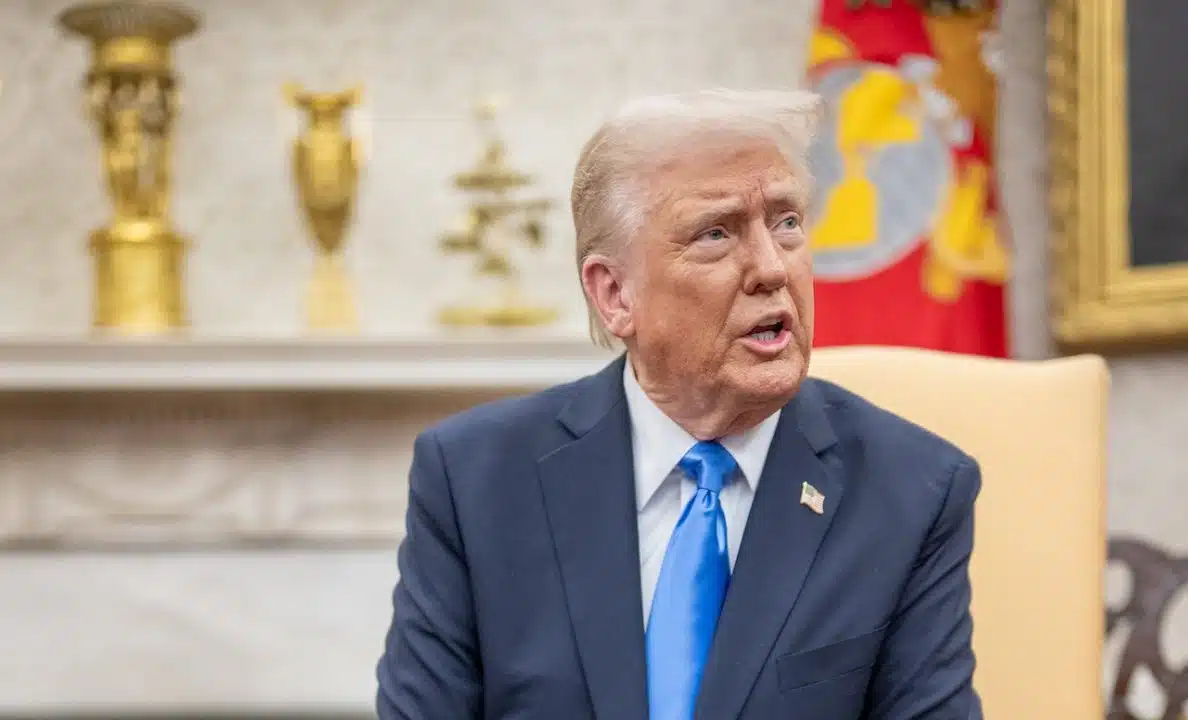The Biden-era approach is out. The Trump administration says it’s reversing decades of failed trade policy with aggressive tariffs — and they argue the results speak for themselves.

In a statement released April 11, 2025, the White House declared President Donald Trump’s 2025 tariff policy essential to fixing a “broken trade system,” citing a massive wave of domestic manufacturing investment as proof that reshoring is working.
Trade Deficit Hits $131 Billion as U.S. Looks Inward
The U.S. trade deficit reached $131.4 billion in January, more than double what it was two decades ago. The White House says past policies encouraged offshoring, costing millions of American manufacturing jobs.
Officials blame these losses for economic decline and even public health crises — noting studies linking job loss to rising drug overdoses. In response, Trump’s 2025 trade agenda aims to revive domestic industry at any cost.
“Make America Wealthy Again” Through Reshoring
The memo highlights dozens of companies that are ramping up U.S.-based production thanks to new tariffs and incentives. Here are just a few examples:
- Apple: $500 billion in manufacturing and workforce development
- TSMC: $100 billion for domestic chip plants
- Nvidia: Hundreds of billions in new investment
- Hyundai: $20 billion total, including a $5.8B steel plant in Louisiana
- Eli Lilly: $27 billion in pharmaceutical production
- GE Aerospace: $1 billion across 16 states, creating 5,000 jobs
- Stellantis: $5 billion to reopen an Illinois plant and expand output
The list includes major global players from France, Germany, South Korea, India, Japan, Switzerland, and Taiwan. Half of Japanese companies surveyed said they plan to increase U.S. investment — many citing the tariffs directly.
Critics Dismiss Tariff Backlash as Elitist
The White House fired back at media skepticism, pointing to recent remarks by MSNBC and CNN hosts questioning the value of jobs in industries like HVAC and lumber.
“Yes, we are making more lumber here,” the statement reads, referencing President Trump’s executive order to expand timber production. “Preserving low-wage jobs in China is not more important than creating high-wage jobs in America.”
National Security and Self-Reliance
Trump officials argue that reshoring is not just economic policy — it’s a matter of national security. They warn the U.S. has become too dependent on foreign manufacturing for vital goods like medicine, semiconductors, and military equipment.
Citing bipartisan concerns, the administration says this shift in strategy is already showing results, and the country is now on a “mission to Make America Wealthy Again.”
Final Thoughts
Love him or hate him, Trump’s trade playbook is changing the conversation. His administration sees tariffs not as punishment, but as fuel — reigniting the American industrial engine after decades of dormancy.

